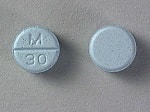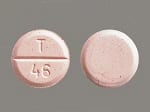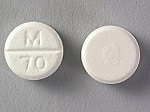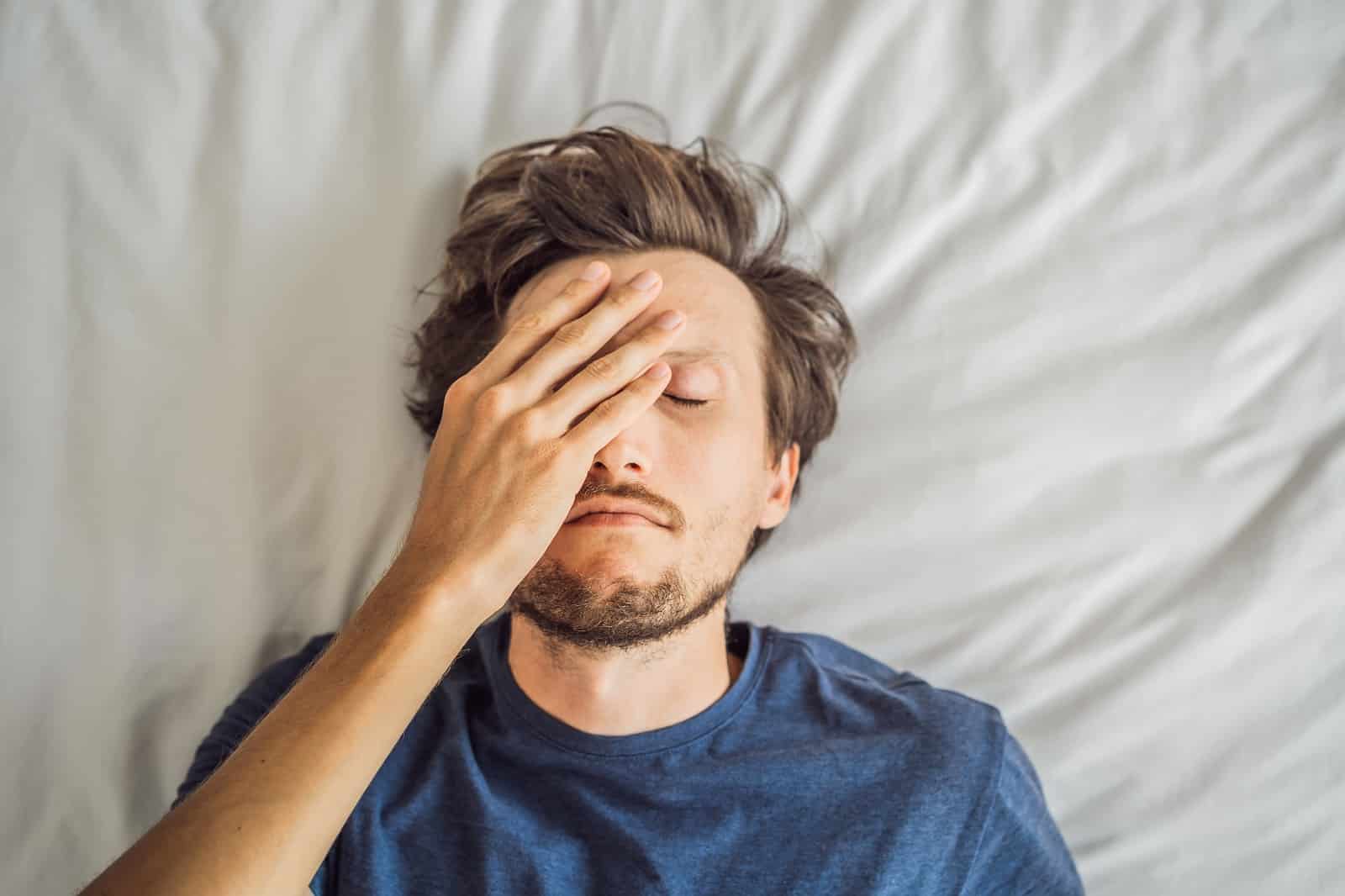Tranxene® Overview
The prescription drug called Tranxene® is used to treat acute alcohol withdrawal symptoms as well as anxiety and seizure symptoms. You can use Tranxene® by itself or alongside other drugs.
Tranxene® is a member of the pharmacological class known as Antianxiety Agents, Anxiolytics, and Anticonvulsants, Benzodiazepines.
What is Tranxene®?
Tranxene®, also known as clorazepate, the generic name for Tranzene®, is used to manage anxiety disorders and alcohol withdrawal and is sometimes used alongside treatment for seizures.
Tranxene® is classified as a Schedule IV drug due to its high potential for abuse and addiction. You must receive a prescription from a medical doctor to take this medication.
Is Clorazepate a Benzo?
Tranxene® or clorazepate, is a benzodiazepine. This class of drugs is known as central nervous system (CNS) depressants, which are drugs that slow down the nervous system.

Is Tranxene® Safe to Take?
Tranxene® is safe to take when used as directed by a doctor. Only use this medication when prescribed. If possible, use a natural alternative.
Abuse and addiction are possible with clorazepate, which increases the risk of overdose and death. It may result in fatal adverse effects if this medication is combined with alcohol or other substances that impair breathing or cause drowsiness.
Tranxene® should not be taken with opioid painkillers like codeine and hydrocodone.
Tranxene® Uses
Follow the directions on your prescription label and read all drug instructions. Never take more Tranxene® than is prescribed or for longer than is advised. Tell your doctor if you have a strong need to take additional Tranxene®.
Anxiety
Tranxene® is a benzodiazepine medication. Clorazepate dipotassium is the generic name for Tranxene®’s active component. Tranxene® has a soothing effect by reducing brain and central nervous system activity. Because of its calming effects, Tranxene® for anxiety may be beneficial for those who take it.
Depression
Using Tranxene® for depression is not recommended. Confusion, a worsening of depression, hallucinations (seeing, hearing, or feeling things that are not there), suicidal thoughts, and unexpected excitement, agitation, or irritability are all possible side effects of clorazepate.
Seizures
Tranxene® is thought to treat epilepsy by obstructing brain nerve transmissions. For those with epilepsy, Tranxene® for seizures is a recommended treatment option. The U.S. Food and Drug Administration (FDA) has approved this prescription to treat patients 10 years of age and older who experience partial-onset seizures.
Panic Attacks
The medication Tranxene® (clorazepate) is a member of the benzodiazepine drug subclass. Since it is an anxiolytic, its therapeutic effects on disorders linked to anxiety and panic are advantageous.
Using Tranxene® for panic attacks is only advisable when directed by a doctor.
Tranxene® For Alcohol Withdrawal
The severity of alcohol withdrawal symptoms may vary from patient to patient. Severe and complex alcohol withdrawal symptoms can include hallucinations, seizures, or delirium tremens.
Using Tranxene® for alcohol withdrawal helps those experiencing withdrawal manage intense symptoms.
Tranxene® vs. Librium® for Alcohol Withdrawal
While both Tranxene® and Librium help with alcohol withdrawal, they each have their own side effects to watch out for.
| Side Effects | Tranxene® | Librium® |
| Drowsiness | X | X |
| Dry Mouth | X | |
| Slurred Speech | X | |
| Blurred Vision | X | |
| Mood Changes | X | |
| Headache | X | |
| Loss of appetite | X |
Tranxene® Dosage
Here are the following recommended doses for Tranxene®.
 |
 |
 |
| 3.75 | 7.5 | 15 |
| Prescribed for:
Anxiety Seizures Alcohol Withdrawal |
Prescribed for:
Anxiety Seizures Alcohol Withdrawal |
Prescribe for:
Anxiety Seizures Alcohol Withdrawal |
Tranxene® vs. Xanax®
Tranxene® and Xanax® are both benzodiazepines used to treat anxiety and assist in panic attacks.
There are key differences between the two. Short-acting benzodiazepines include Tranxene®. The effects of Tranxene® typically disappear after 3 to 8 hours. Compared to Tranxene®, Xanax® has intermediate-acting characteristics, which means it takes longer to take effect. Typically, Xanax®’s effects linger between 11 and 20 hours.
Tranxene® vs. Ativan®
A powerful medication for transient or infrequent anxiety is Ativan®. Compared to similar medicines, it is more likely to elicit withdrawal symptoms than drug interactions. An effective fast-acting treatment for anxiety and alcohol withdrawal symptoms is Tranxene®.
Ativan® is effective for people taking antidepressants to fill the gap when waiting for antidepressants to take effect. Tranxene® is also fast-acting for anxiety but is used mostly for alcohol withdrawal-related problems.
Tranxene® vs. Valium®
Both Tranxene® and Valium® help to calm one down, but there are key differences between the two medications.
Valium® is known to have less severe withdrawal symptoms than other similar drugs but has higher levels of drug interactions. Tranxene® is highly addictive, more so than Valium®.
Tranxene® Side Effects
Like all medications, Traxene® has side effects. Even though not all of these side effects are likely to occur, if they do, medical treatment may be required. Some common side effects include:
- Blood in urine
- Frequent urge to urinate
- Lower back pain
- Shakiness
- Trembling hands and feet
- Unsteadiness
Tranxene® Withdrawal Symptoms
Tranxene® withdrawal symptoms can include:
- Changes in mood
- Sweating
- Tremors
- Flu-like symptoms
- Insomnia
- Nodding off
- Anxiety
- Hallucinations
- Seizures
- Memory loss
While anyone who uses benzodiazepines for an extended period of time runs the danger of developing physical dependence, elderly persons appear to be especially susceptible to major side effects. If benzodiazepine dependence in older adults is not properly managed, they may have confusion or dementia-like symptoms.
How to Detox From Tranxene®
Some of the most severe and even life-threatening withdrawal symptoms can be caused by benzodiazepines like Tranxene®. Medical is the safest option for those taking this medication in large doses or for an extended period of time.
The psychological symptoms of Tranxene® withdrawal might continue for a long time. Clients should receive treatments at a medical detox that will keep them safe and also improve their comfort. An experienced team can also treat any co-occurring mental health issues and arrange future addiction therapy.
Tranxene® Detox Timeline
When working through Tranxene® detox, you will experience symptoms as your body gets used to not having the drug again.
Day 1-2: You can start to feel the effects of withdrawal, including headaches, nausea, vomiting, muscle spasms, anxiety, and diarrhea.
Day 2-7: At this point, nausea, anxiety, and insomnia will be at their height. You could start to feel uneasy on a psychological, emotional, and bodily level. Due to the possibility of seizures happening during this time, medical care is advised.
Two Weeks: Your symptoms are still there, however you may start to feel better before unpredictable bouts of rebound anxiety and insomnia. This occurs as a result of the drug taking a while to leave your body.
After Two Weeks: The acute sensations start to subside as your recovery progresses. During this time, post-acute withdrawal symptoms (such as depression, drug cravings, and irritability) can emerge. To assist you in getting through this phase and dealing with cravings and other symptoms, treatment should be continued.

Tranxene® Overdose Symptoms
Seek medical attention immediately if you experience any of the following symptoms as you may have Tranxene® overdose:
- Loss of consciousness
- Mood changes
- Sleepiness
- Drowsiness
- Nodding Off
- Blue fingernails or lips
Is Tranxene® Addictive?
A benzodiazepine, such as Tranxene®, is known to be highly addictive. Even those who are given this medicine for medical reasons run the risk of abusing it because it has a risk for psychological addiction. Never use more Tranxene® than advised, and never take it without a prescription.
Tranxene® Addiction Treatment & Rehab Options
Tranxene® addiction is not a permanent condition. There are choices available if you or someone you love has a Tranxene® addiction.
You can get support with Tranxene® addiction through treatment and safely wean off the drug. You will also strengthen your coping skills against anxiety and see better results when abstaining from alcohol.
The only method to recover from this condition is through a Tranxene® treatment that offers medically assisted detox.
Tranxene® Frequently Asked Questions
Here are some answers to frequently asked questions about Tranxene®.
Taking Clorazepate® is only recommended when directed by a doctor. Confusion, a worsening of depression, hallucinations (seeing, hearing, or feeling things that are not there), suicidal thoughts, and unexpected excitement, agitation, or irritability are all possible side effects of Clorazepate®.
Clorazepate® is addictive, even when taken as directed by a doctor. This medication may become addictive if taken in excess over an extended period of time (causing mental or physical dependence). If you take too much of this drug at once, serious side effects can occur, like overdose or even death.
Because Clorazepate® is habit-forming, it comes with a high risk of dependence. It is only recommended for short-term use.
The dosage of Clorazepate® will vary depending on the person. Observe your doctor’s and the label’s instructions. Unless your doctor instructs you to, do not alter your dose if it differs from the recommended one.
The strength of the medication determines how much of it you should take. Additionally, the medical condition for which you are utilizing the medication affects the number of dosages you take each day, the interval between doses, and the duration of treatment.
Clorazepate® takes between one and two hours to kick in.
You may have withdrawal symptoms if you dramatically reduce your dosage or stop using Tranxene® after taking it for medical or recreational purposes for more than a few weeks. It can be quite dangerous to stop taking this drug abruptly.
Seek medical assistance when stopping this drug.
Recover From Tranxene® Addiction
There is dignity in healing. If you are struggling with addiction, help is here for you. Contact us today to get treatment for Tranxene® addiction.
